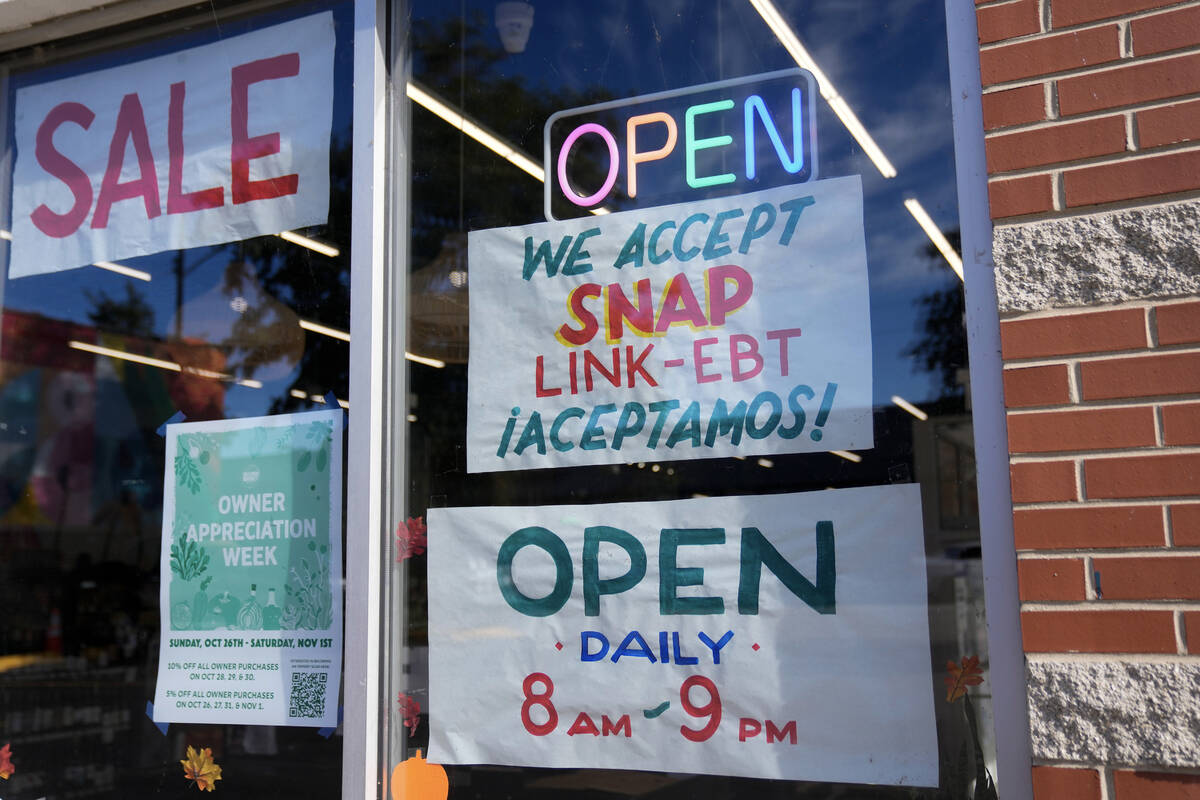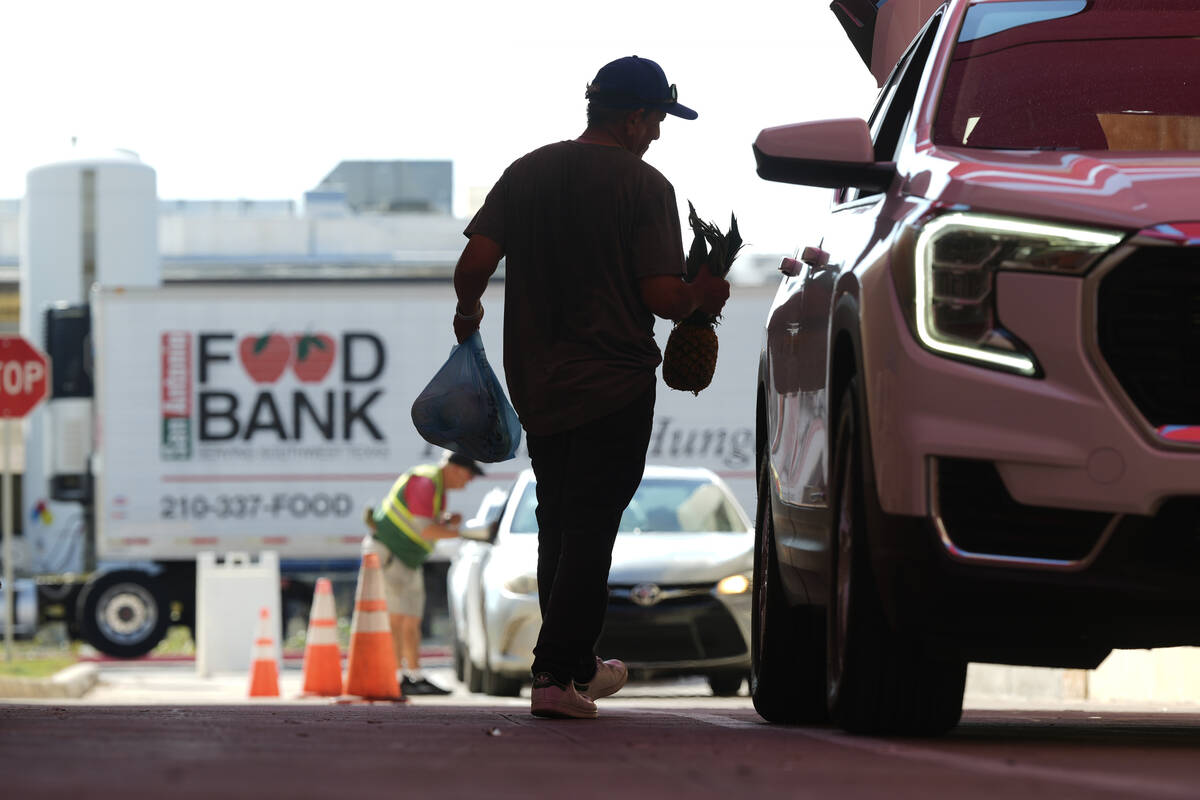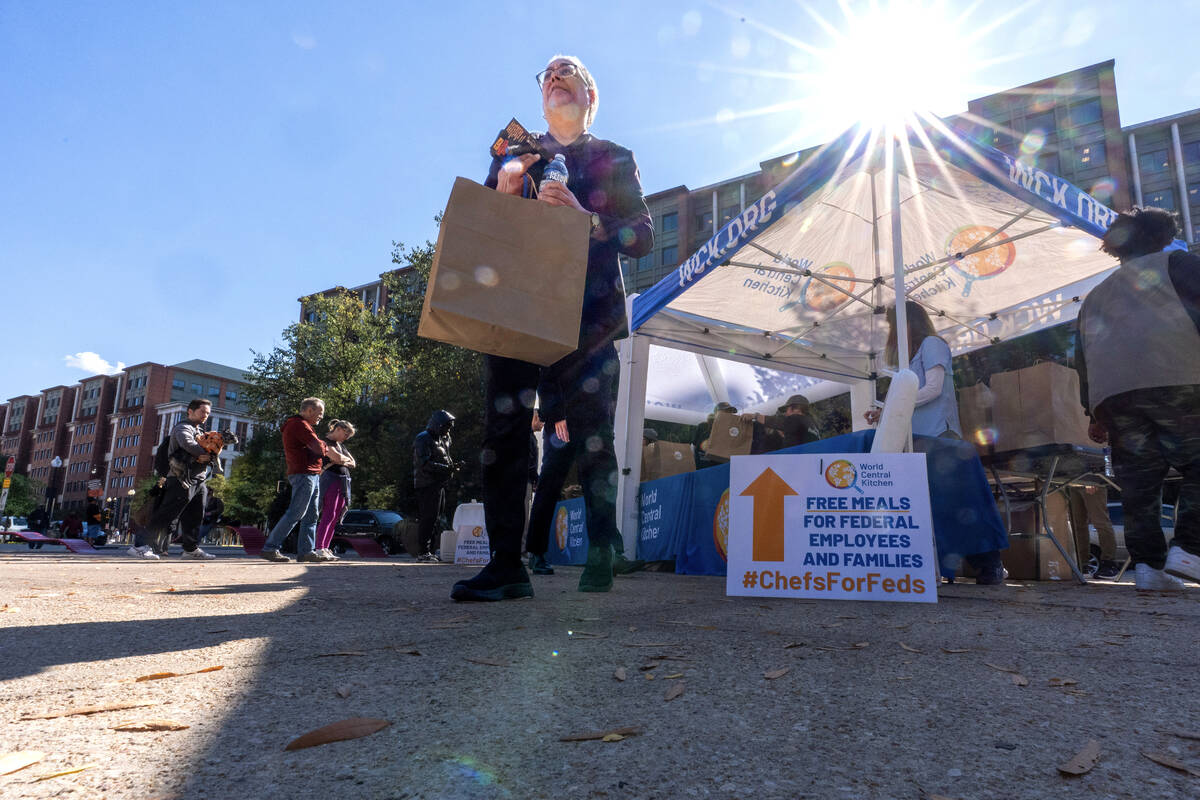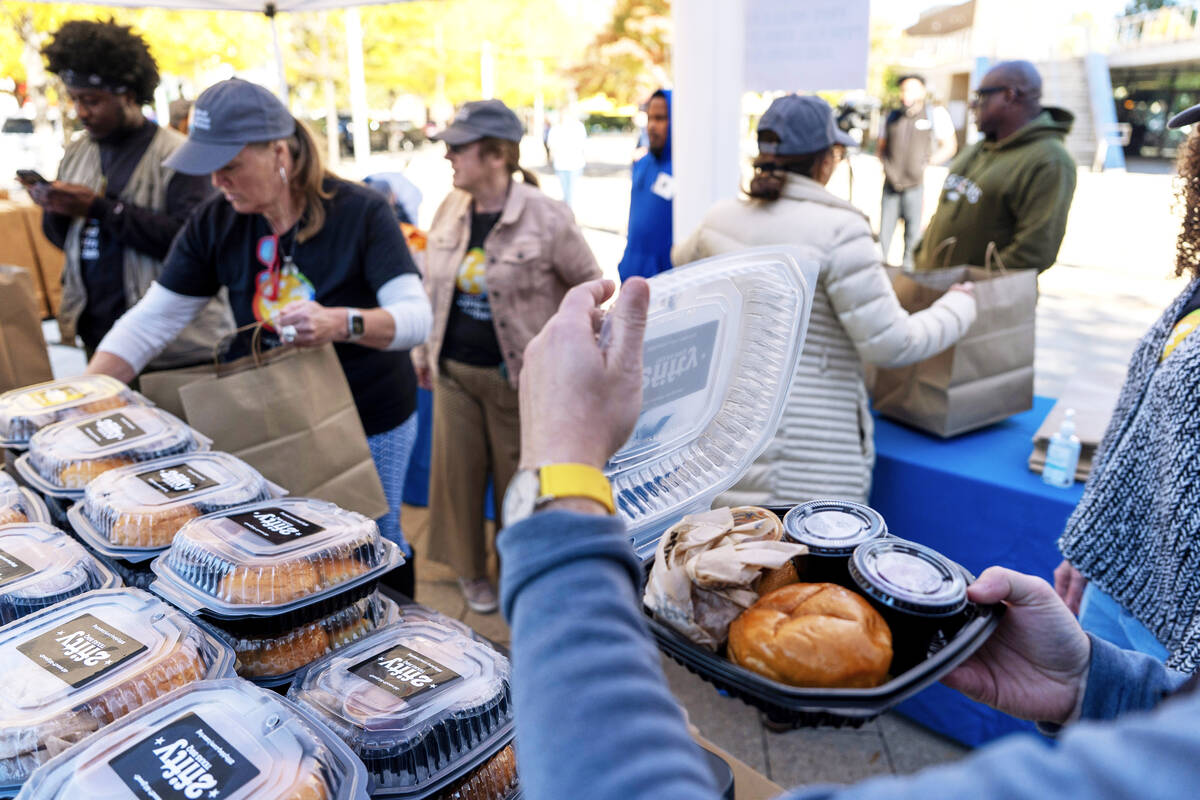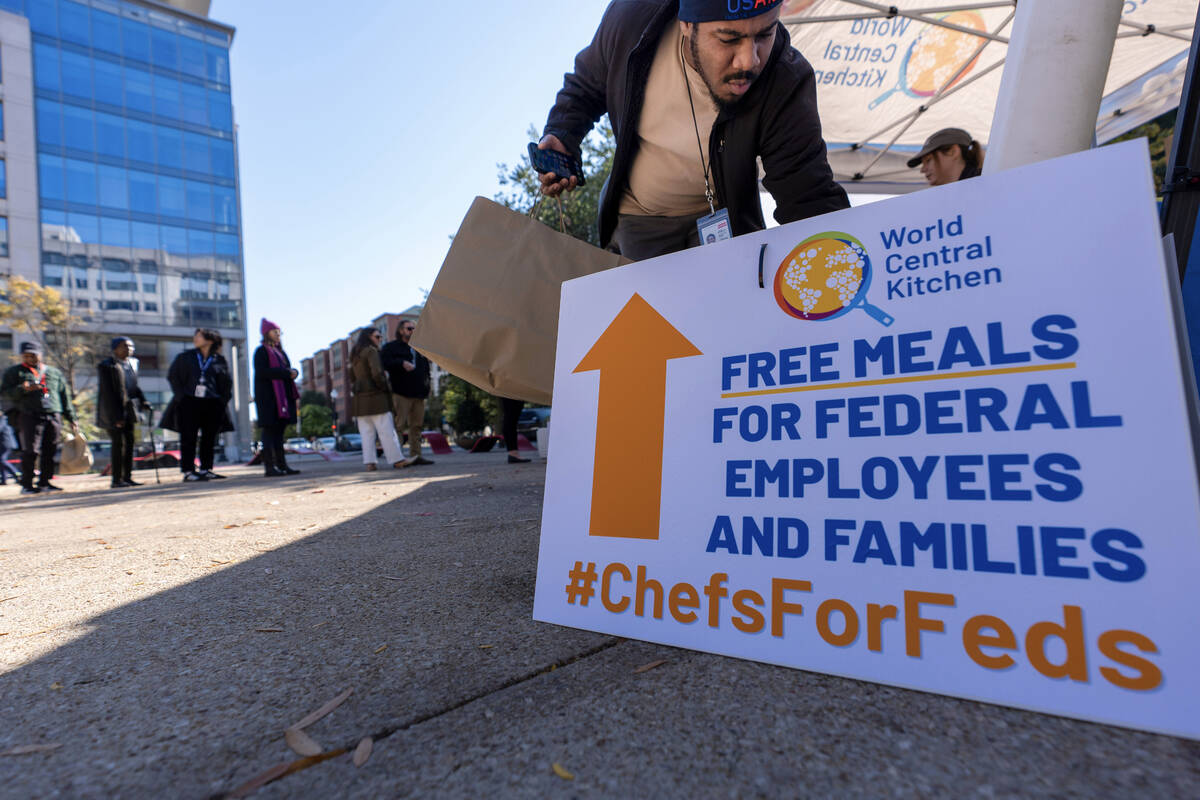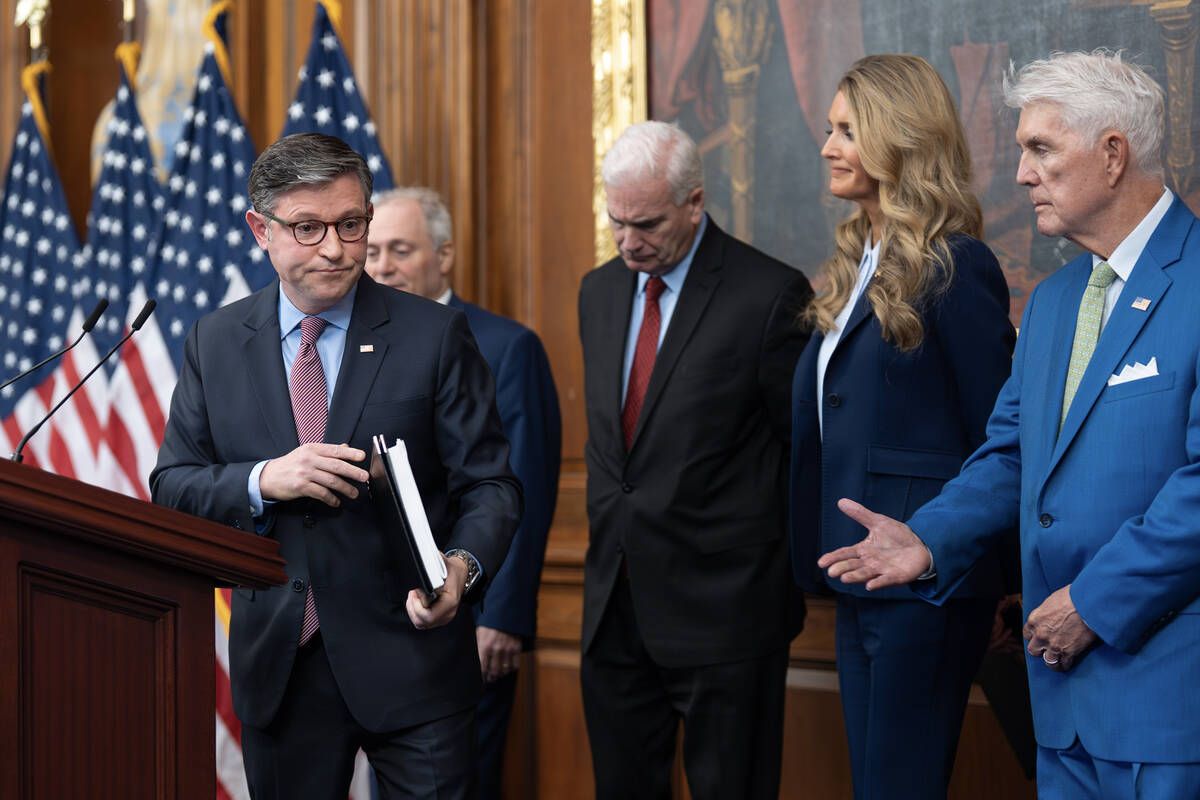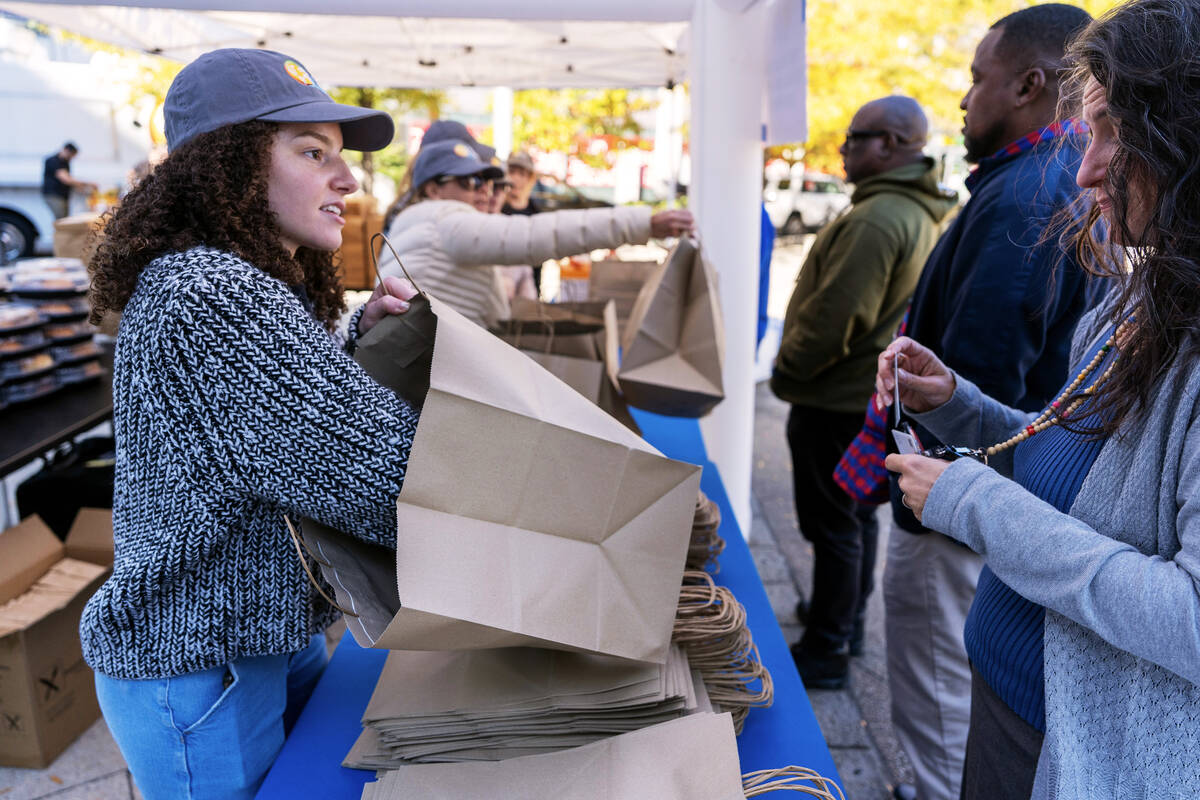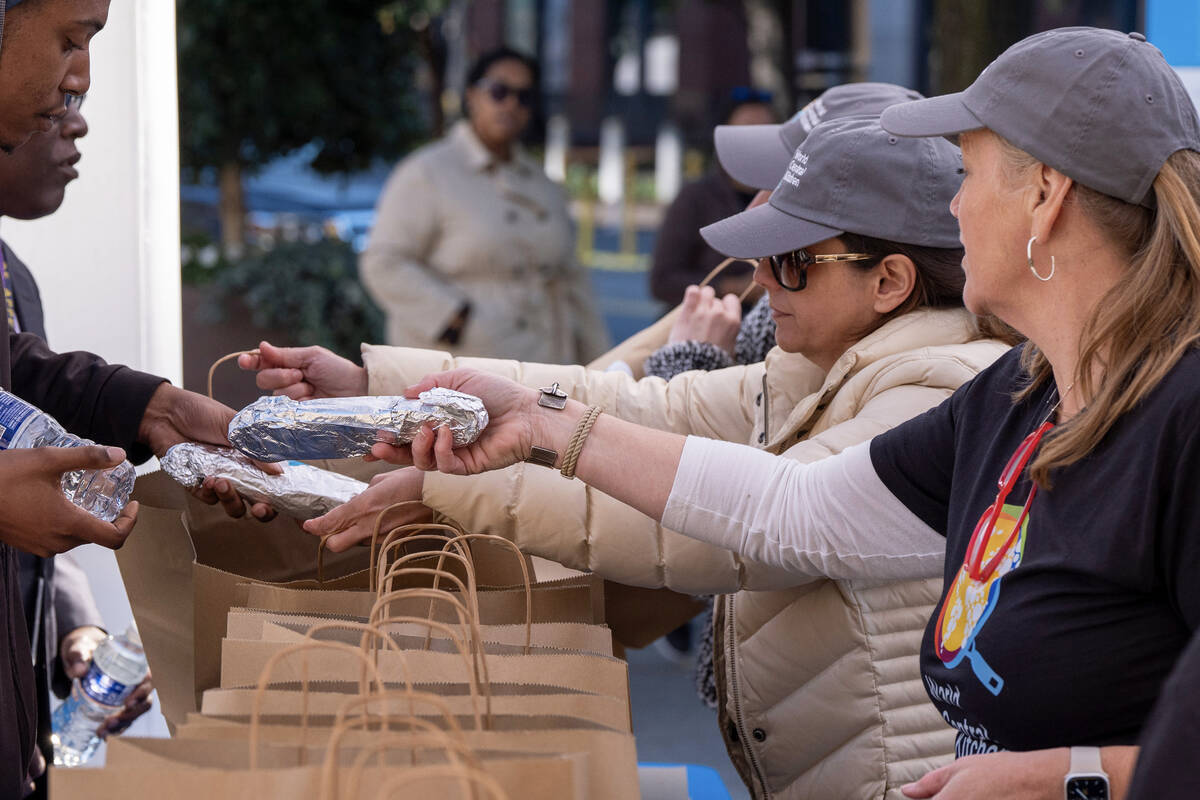SNAP food assistance could end Saturday for 500K in Nevada
Federal rules prevent Nevada from directly funding a food program that helps feed half-a-million state residents, even as it’s slated to run out of money Saturday because of the government shutdown, Gov. Joe Lombardo wrote in a letter.
Nevada’s Supplemental Nutrition Assistance Program, commonly known as SNAP, costs the federal government about $90 million a month, according to the state.
Lombardo was responding to Nevada Democrats who had asked the Republican governor “to use every tool and resource available” to continue to support SNAP, including calling for a special session.
“As the Republican shutdown continues, many families who depend on SNAP will likely turn to food pantries for help,” Reps. Steven Horsford, Dina Titus and Susie Lee wrote in their own letter to the governor.
“SNAP is a lifeline for nearly half-a-million Nevadans, and drives commerce at grocery and convenience stores across our state,” Horsford wrote in a statement. “The program is the difference between a warm meal or going without, while also creating jobs and helping small businesses thrive.”
The U.S. Senate has tried to pass a clean funding bill several times that would end the government shutdown. It has passed in the House and has majority support in the Senate, including from Sen. Catherine Cortez Masto, D-Nev., but does not have enough support from Democrats to get past a filibuster, which requires 60 votes to move forward.
Governor writes to Democrats
Lombardo wrote that the proposal runs counter to U.S. Department of Agriculture rules that don’t allow states to share data of SNAP participants with vendors.
“While the State could seek access to reverted General Fund dollars, unspent American Rescue Plan Act (ARPA) funding, or Rainy Day Funds through legislative authorization to temporarily fund emergency benefits, the emergency program would need to stay fully distinct from SNAP to remain compliant with federal regulations,” Lombardo noted.
Implementing an independent emergency program similar to SNAP would take a minimum of three months, according to the state.
In the meantime, Lombardo wrote in the letter that he instructed state agencies to “expand support for food banks and community partners that serve SNAP beneficiaries.”
He said the Nevada National Guard would be ready to help with food distribution.
“Even if I called a special convening of the Legislature and the Legislature opted to appropriate temporary SNAP funding, the State would not be able to directly fund the program,” said Lombardo, citing federal regulations.
“My administration has also reiterated this, repeatedly, to State Treasurer (Zach) Conine,” he added.
Nevada treasurer says the state can help
Conine on Friday had called on Republicans and Democrats to work to reopen the government, adding that letting SNAP benefits lapse could lead to a $162 million hit a month in economic output for Nevada.
He told the Las Vegas Review-Journal that Nevada’s rainy day fund, which currently sits at $1.29 billion, can help supplement SNAP benefits in a “meaningful way” without directly supporting the program.
The state, he said, should “explore every possible way to provide emergency food assistance.”
Conine has launched a bid to become the Democratic nominee for the Nevada attorney general’s race in 2026.
Democrats like Sen. Jacky Rosen, D-Nevada, said the USDA recently deleted an online copy of the agency’s shutdown plan they say would have allowed the federal government to continue funding SNAP through a multi-agency contingency plan.
“Donald Trump is putting Nevada families at risk of losing critical food assistance by rescinding emergency SNAP funding that his Administration had already committed to use during the Republican government shutdown,” Rosen said in a statement Monday.
The agency recently issued a memo that stated that those dollars could not pay for SNAP’s food stamps nor reimburse states if they stepped in to help, Axios reported.
Conine said he believes the determination is incorrect, “but if the USDA said we can’t do a thing (about SNAP), our next step has to be figuring out what we can do.”
Parties blame each other
While vowing to work on bipartisan solutions to end the shutdown, which began Oct. 1, Lombardo and Nevada Democrats have continued to place blame on the other party for the stalemate.
“We are doing everything within our authority to support Nevadans who are being hurt by the federal funding stalemate in Congress being fed by Democrats’ inaction,” Lombardo said. “I implore each of you to join in bipartisan efforts to reopen the federal government.”
Disagreements in Washington, D.C., have centered around Affordable Care Act subsidies set to expire at the end of the year, which Democrats say will lead to higher health insurance premiums for recipients. Among other demands, Democrats want those subsidies extended.
On its website, the USDA blamed Senate Democrats for the ongoing shutdown, adding that, “the well has run dry.”
Earlier this month, Nevada lawmakers set aside $7.3 million in emergency funds to keep funding another supplemental food program until late December, if the federal government doesn’t reopen by then.
Nevada’s Women, Infants & Children program, commonly known as WIC, serves almost 56,000 pregnant women, new mothers and young children in the state.
Contact Ricardo Torres-Cortez at rtorres@reviewjournal.com.



